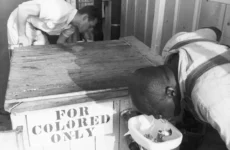Six out of 10 Colorectal Cancer Deaths Could Be Prevented
By Renae Kimble
March is Colorectal Cancer Awareness Month and the Cancer Services Program of Ni-agara County is urging everyone to talk to their doctor about screening and testing op-tions for colorectal cancer (also called colon cancer).
Colorectal cancer is the third most common cancer in New York state (excluding skin cancer) and the second leading cause of cancer deaths. Each year, more than 10,000 New Yorkers develop colorectal cancer and more than 3,500 die as a result.
It doesn’t have to be that way. With recommended screening, the number of people who die from colorectal cancer could be reduced by at least 60 percent.
When colorectal cancer is found and treated early, it can often be cured. In some cases, screening can actually prevent the development of colorectal cancer by finding abnormal growths called polyps so they can be removed before they become cancerous.
Racial/ethnic disparities are seen in colorectal cancer incidence and mortality rates, with higher colorectal cancer incidence and mortality rates in African Americans than whites. Hispanics have a lower incidence of colorectal cancer and mortality than whites.
The most striking difference is by gender, where men have 30 percent higher incidence of colorectal cancer and a 40 percent higher mortality rate than women.
Nonetheless, all men and women age 50 and older should get screened for colo-rectal cancer.
Colorectal cancer may not cause symptoms, especially at first, which is why reg-ular screening is needed to catch the disease in its earliest stages. We want people to know there is more than one screening test for colorectal cancer and screening is easi-er than ever. The important thing to remember is to talk to your doctor, decide which screening test is right for you, and get screened.
The Cancer Services Program of Niagara County can help people who are with-out a doctor or without insurance. Call us at (716) 278-4898.
Although this disease can occur at any age, most people who develop colorectal cancer are over age 50. Anyone with a personal or family history of colorectal polyps or colorectal cancer, or with a personal history of inflammatory bowel disease is at a high-er risk for developing colorectal cancer. Those individuals should talk to their doctors about when to begin screening and how often they should be tested.
Spread the word! Talk to your parents, siblings, children, co-workers, and friends about getting screened. The Cancer Services Program of Niagara County provides free colorectal cancer screenings for uninsured and underinsured men and women age 50 and older. If you have insurance, talk to a health care provider about when you should start getting screened. There are no excuses!
Celebrate Colorectal Cancer Awareness Month! Dress in blue on Friday, March 4, for “National Dress in Blue Day” to call attention to this disease. Give the ‘winter blues’ a different meaning this year and help to save lives, even your own!
The Cancer Services Program of Niagara County, an affiliate of Niagara Falls Memorial Medical Center, is part of the New York State Department of Health’s Cancer Services Program. That program offers colorectal, breast and cervical cancer screening to eligible uninsured individuals in every county in the state.
The Cancer Services Program of Niagara County works to increase breast, cer-vical and colorectal cancer screening among the residents of Niagara County through public education, policy and systems changes and the provision of free cancer screen-ing for the uninsured.
For individuals insured through Medicaid, Medicare, and commercial health plans, including those participating in the New York State of Health, colorectal cancer screening is covered with no cost to the patient.
To learn more about screening options, visit: http://www.health.ny.gov/diseases/cancer/colorectal/screening.htm




















